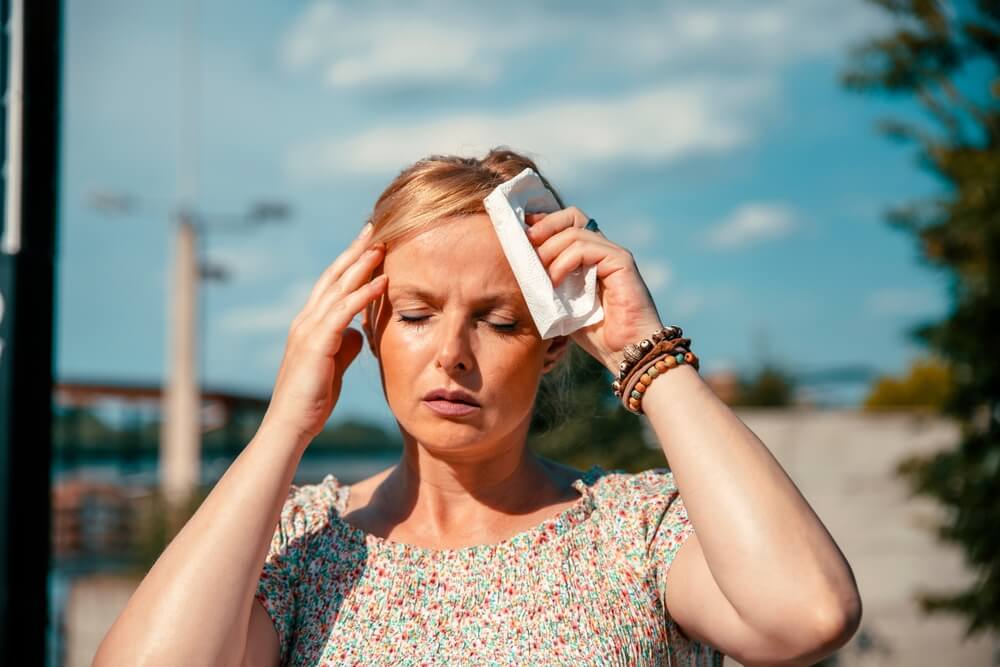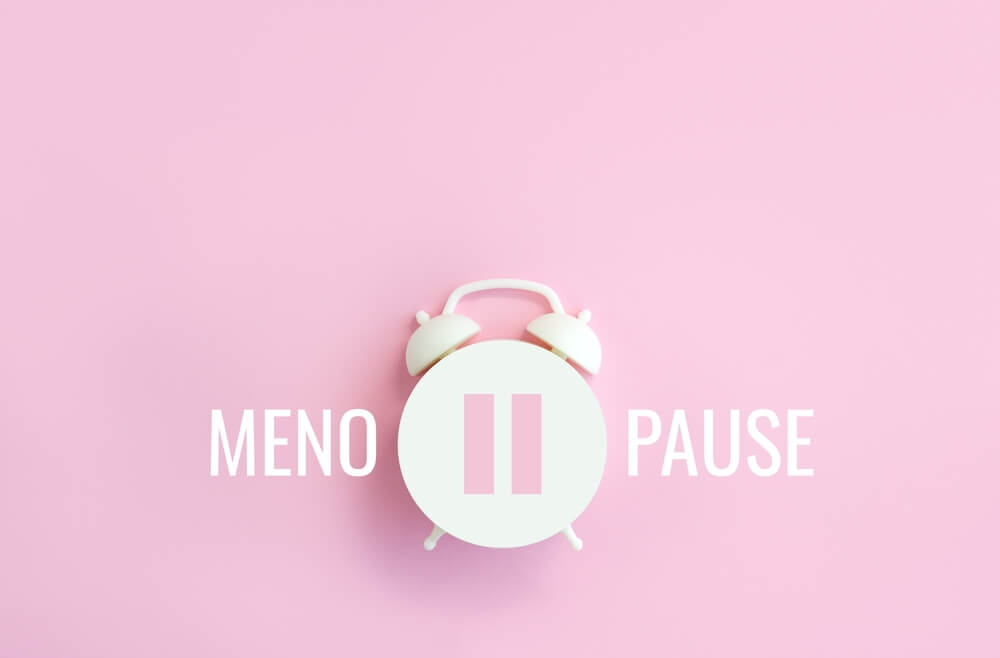Once a woman experiences 12 consecutive months without getting her period, she has officially hit menopause. When they reach the age of menopause, women will often deal with specific symptoms such as vaginal dryness and hot flashes, which are the most common signs of menopause. This typically happens in the late 40s and early 50s. What signals the end of menopause is the disappearance of these symptoms. Losing the period is a normal and natural part of the female reproductive and aging process. However, menopausal women should still attend regular gynecological appointments to maintain their health. That said, make sure to find the best gynecology specialist in Margate, Florida, whom you can fully trust.
What Causes Menopause to Occur
Natural menopause that happens due to age and not some other health condition or surgery is characterized by a whole year of no periods. Namely, the female reproductive cycle gradually slows down as women age until it finally stops. As women start nearing the age of menopause, their ovaries produce less estrogen, which causes the periods to become sparser and lighter until they end entirely. The common signs of menopause that women tend to experience during this period are due to these physical and hormonal changes.
Menopausal women first go through the perimenopause stage when they start having irregular periods and notice their first symptoms, then enter menopause during the 12 consecutive months of getting no periods. Afterward, they enter postmenopause with decreasing symptoms, which signals the end of menopause.
While the actual menopause lasts for a whole year, perimenopause can last up to ten years, while postmenopause is a period after menopause that will last for the rest of the woman’s life.
In general, the typical age of menopause is anywhere between 45 and 55 years of age. When it happens due to age at this particular range, menopause is considered natural. However, some women can hit menopause earlier than 45, often due to damage to the ovaries or surgeries. When menopause happens between 41 and 45 years of age, it’s referred to as early menopause. When women enter menopause when they’re just 40 or even younger, we’re talking about premature menopause. If there is no apparent reason for premature menopause, such as clear surgical or medical reasons, it’s then called primary ovarian insufficiency.

The Most Common Symptoms and Signs of Menopause
The following symptoms are the most common signs that a woman is slowly entering the menopause:
- Vaginal dryness
- Dry skin and mouth
- Uncomfortable intercourse
- Sleep issues
- Night sweats
- Frequent need to urinate
- Emotional ups and downs
Sometimes, menopausal women also report experiencing the following symptoms:
- Irregular menstrual periods
- Lighter menstrual periods
- Worse premenstrual symptoms
- Tender breasts
In some cases, it’s also possible to experience the following:
- Headaches
- Pain in muscles and joints
- Weight gain
- Racing heart
- Libido changes
- Hair loss
- Concentration issues
Not all women will experience all of the symptoms mentioned above. Fluctuating hormonal levels mainly cause them. However, those that experience symptoms such as frequent headaches and need to urinate as well as a racing heart should definitely visit a doctor to ensure that there are no other health issues that could be the underlying reason for them.
Women looking for natural ways to relieve their symptoms of menopause should consider changing their lifestyles. For instance, the following practices could prove to be highly beneficial:
- Diet changes; limit the consumption of alcohol, caffeine, and spicy foods. Also, add fruits and veggies, grains and lentils, soybeans and beans, chickpeas, and flaxseed to your diet.
- To minimize the surge of hot flashes, keep your bedroom cool, wear light and comfy clothes, try your best to quit smoking, and maintain a healthy body weight.
- Exercising is a great way to relieve many different symptoms of menopause. Pick a workout routine that doesn’t put too much stress on your joints. If you’re dealing with too much stress and anxiety, try yoga.
Other ways to alleviate menopause symptoms involve prescription medication such as hormonal therapy, birth control, antidepressants, vaginal creams, etc.
The Matter of Hot Flashes
The most common symptom of menopause that most women experience is hot flashes. Essentially, it’s a relatively short but sudden heat sensation that spreads throughout the body. Of course, not everyone will experience hot flashes in the same way. There’s also no apparent reason for why they happen in the first place. Hot flashes are sometimes accompanied by cold flashes, sweating, and facial redness.
Women experience hot flashes differently, and their longevity can also differ from individual to individual. In most cases, hot flashes happen for a short while during menopause, and their disappearance is what signals the end of menopause. However, some women report experiencing hot flashes in varying degrees for the rest of their lives. Still, they often become less severe in time.
While there’s no sure and confirmed reason in terms of what triggers hot flashes, there are some general daily things that could bring about a hot flash, such as:
- Spicy food
- Too much coffee
- Smoking and drinking alcohol
- Hot weather
- Tight clothes
- Anxiety and stress

Can Menopause Cause Depression?
A woman’s body goes through many changes during menopause and rather extreme hormonal fluctuations. This can easily cause hot flashes, mood swings, and poor sleep patterns. Some women also experience feelings of anxiety and fear. Therefore, it’s not unheard of that the combination of these symptoms could lead to depression.
If you believe you’re feeling depressed, make sure to reach out to your doctor as soon as possible. This is not just important to get the mental and emotional support you need but to also perform additional necessary health checkups to rule out other potential medical conditions that could trigger depressive behavior at this point in life.
Even if they’re not depressed, it’s not uncommon for women to experience a range of different emotional ups and downs during this time, such as:
- Feeling irritable and aggressive
- Dealing with mood swings, tension, and anxiety
- Experiencing concentration issues and lack of motivation
- Having no energy
- Suffering from insomnia and headaches
All of the things mentioned above could happen to anyone in no relation to menopause. The chances are that you have already experienced some of them at some point in your life. When these occur as a direct result of menopause, it’s essential to communicate these issues to your doctor to help manage the symptoms as much as possible. Sometimes, taking an appropriate hormonal therapy or antidepressants could make a massive difference in a woman’s quality of life. There are also plenty of support groups that can help the individual deal with these changes and emotional ups and downs better.
There’s no need to fear menopause as this is an entirely natural part of the female aging and reproductive cycle. However, there’s no reason to endure the symptoms when they can be relieved. This is why it’s so important to be very open and transparent with your doctor and also rely on a medical professional whom you can fully trust. That said, you can always count on Dr. TaiSenChoy-Bent, an experienced obstetrics and gynecology specialist who has helped countless women live a life of wellness and happiness.


